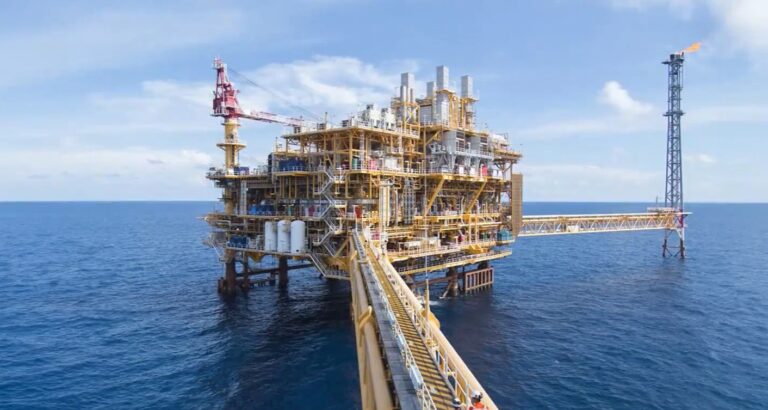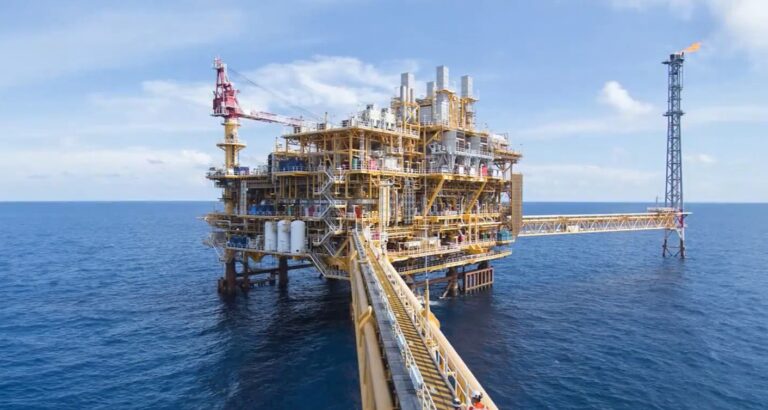Thailand’s national oil and gas company PTT Exploration and Production (PTTEP) has shared its investment agenda for the next five years, with plans to focus on boosting production to increase the
Thailand’s national oil and gas company PTT Exploration and Production (PTTEP) has shared its investment agenda for the next five years, with plans to focus on boosting production to increase the country’s energy security, among other things.

According to PTTEP, the investment strategy for the 2025–2029 period aims to drive and enhance the value of its core exploration and production (E&P) business while working toward achieving net zero greenhouse gas emissions by 2050.
The company’s combined five-year budget is set to reach $33.58 billion, with the largest investment scheduled for 2025 – $7.81 billion, comprising $5.29 billion for capital expenditures (CAPEX) and $2.52 billion for operating expenditures (OPEX).

The investment plan for next year will be focused on ensuring energy security for Thailand, while also strengthening and expanding investments in E&P business abroad to foster long-term sustainable growth.
The first area PTTEP intends to focus on in this regard is maximizing production from current producing assets that are said to be vital to supporting Thailand’s energy security. This includes G1/61 (Erawan), G2/61 (Bongkot), Arthit, S1, Contract 4, as well as the Malaysia–Thailand Joint Development Area (MTJDA) projects.
In this context, the Thai player ramped up the gas production to 800 million cubic feet per day (mmscfd) from the G1/61 project in March to alleviate the impact of electricity costs, meet the rising energy demand, and strengthen the country’s energy security.
Natural gas from the Zawtika and Yadana projects in Myanmar is also expected to contribute to the firm’s goals. Since PTTEP says producing projects in Malaysia and Oman also play an important role in this, a total CAPEX budget of $3.67 billion has been allocated to support these activities.
Furthermore, a roadmap for slashing greenhouse gas (GHG) emissions has been put in place to achieve net zero emissions by 2050, with interim targets to reach a 30% reduction by 2030 and 50% by 2040, compared to the 2020 baseline. A total of $77 million is expected to be spent on decarbonization-related efforts in 2025.
Secondly, PTTEP intends to accelerate the activities of key projects currently in development to meet the planned production start-up timelines. This includes the Ghasha concession – said to be the world’s largest offshore sour gas development – in which the firm purchased a stake in June.
Related Article
There is also the Abu Dhabi Offshore Block 2, where the Thai player’s partner Eni made a gas discovery in 2022, Mozambique Area 1 projects, and Malaysia greenfields, such as Malaysia SK405B, SK417, and SK438 projects. A CAPEX budget of $1.46 billion has been allocated for these projects.
Third, boosting exploration activities for existing projects in the exploration, development, and production phases is also envisaged to support long-term growth. To this end, a CAPEX budget of $127 million is planned to be spent on drilling exploration and appraisal wells in Thailand, Malaysia, and Myanmar.
Based on the budget and planned activities, the Thai player’s average petroleum sales volume from existing projects are anticipated to reach 507 thousand barrels of oil equivalent per day (kboed) in 2025. This is expected to increase to 541 kboed in 2026, then drop to 528 kboed in 2027, growing to 585 kboed in 2028, and finally reaching 581 kboed in 2029
As part of PTTEP’s efforts to prioritize the sustainable growth of its business during the global energy transition, the company has started expanding into new areas, allocating a provisional $1.74 billion over the next five years (2025–2029), on top of the previously announced budget.
This entails supporting investment opportunities in offshore wind, carbon capture and storage as a service (CCSaaS), hydrogen, and corporate venture capital (CVC). One of the steps the company made in this regard was the signing of memorandums of understanding (MoU) focused on CCS technology with Mahidol University in February and the Thai public university Kasetsart University in May.
Related Article
-
Thai national oil & gas company sets another CCS deal into motion
Carbon Capture Usage & Storage
Content Original Link:
" target="_blank">


























































